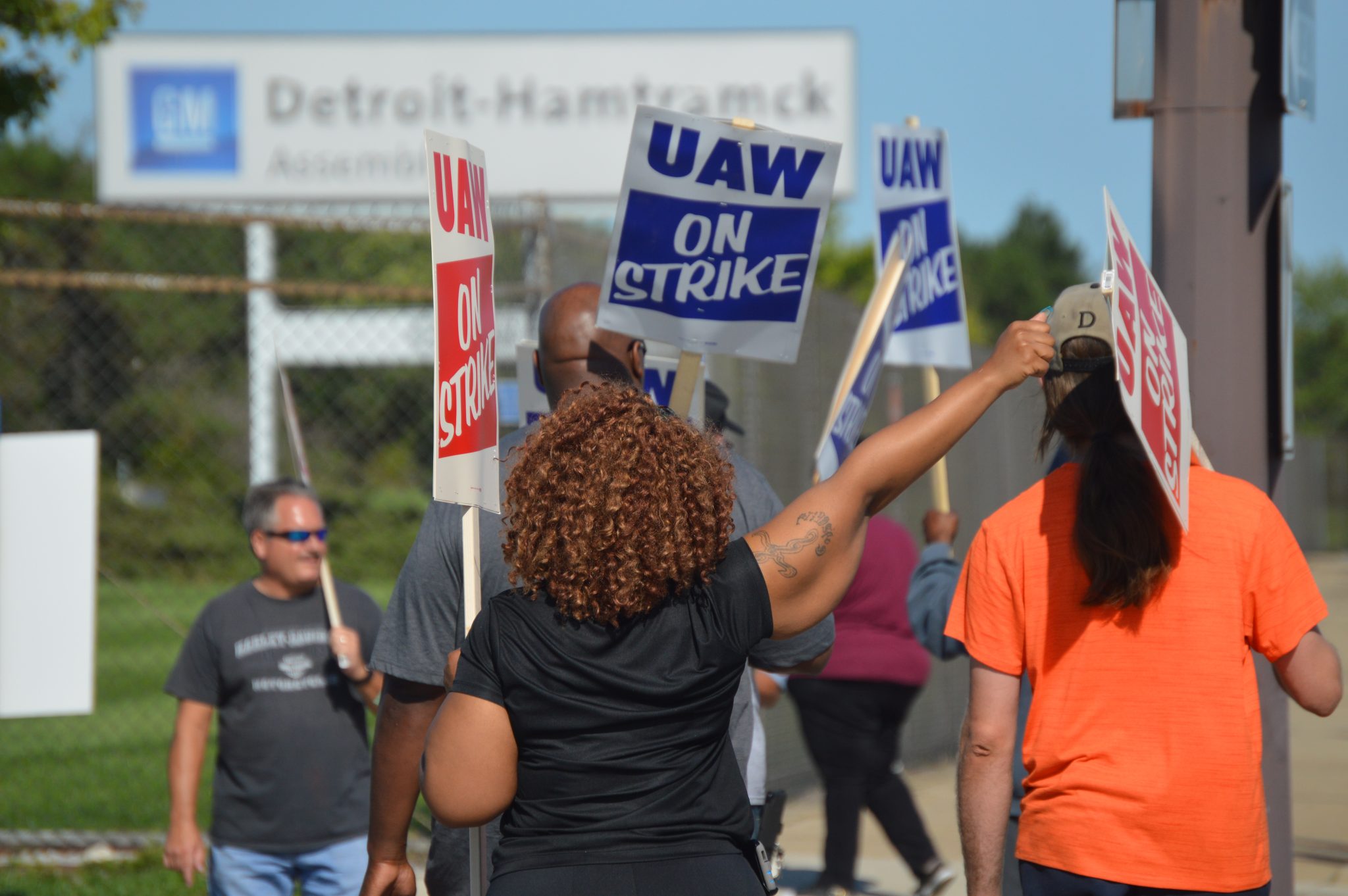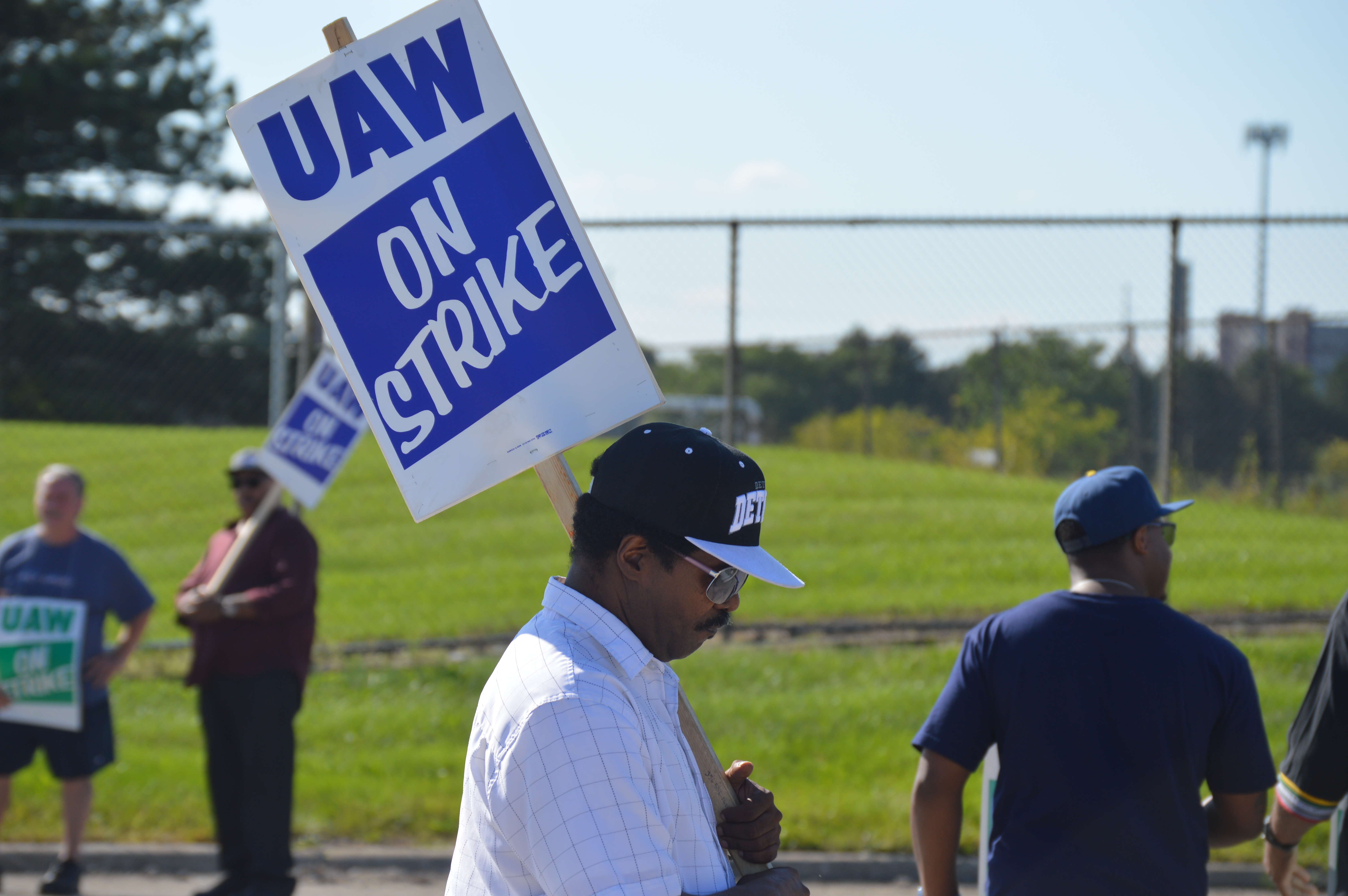UAW Strike Against GM Stretches Into Second Week
Wayne State University labor expert Marick Masters discusses historical context, widening wealth gap, and future implications of UAW strike against GM.

United Auto Workers members picket outside of GM's Detroit-Hamtramck Assembly Center in September 2019.

Editor’s note: WDET reporters are members of the Professional and Administrative Union, Local 1979, UAW.
The UAW strike against General Motors is now in its second week.
After 9 days of striking, where do negotiations stand? And how does this strike compare to other auto worker strikes throughout history?
“It is a sliver of impact that is potentially had in this strike compared to what you had 50 years ago,” says Marick Masters, a labor expert and professor of business and interim chair of the finance department at Wayne State University’s Mike Ilitch School of Business. “And I think that speaks to the decline of labor.” According to Masters, a major strike in 1970 saw approximately one million workers striking against GM, while today, there are fewer than 50,000 people involved.
“A lot of the protections that we take for granted in the workplace today were won by unions and they were hard-fought battles by workers who made great sacrifices.”
One significant hurdle to overcome before both sides reach an agreement is addressing the disparity between full-time and temporary workers. “I think it’s going to be very difficult to get a tentative agreement,” Masters says. “You have the use of temporary workers… who don’t get all the benefits that so-called legacy workers do. This is sparking a discussion about the role of the middle class.” In addition to the gap that exists between full-time and temporary workers, Masters points to the increasing divide between executive and hourly worker pay, saying that executive salaries are going up while typical workers’ wages have stagnated or even fallen. He says this is making it “harder for those in the shrinking middle [class] to get ahead.”
UAW workers are compensated $250 per week while on strike, and last week General Motors announced that they were dropping health-care plans for striking workers, increasing the tension between both sides. In the face of those economic implications, is a strike the most effective way to get a point across? According to Masters, yes: “A lot of the protections that we take for granted in the workplace today were won by unions and they were hard-fought battles by workers who made great sacrifices.”
RELATED: UAW Strike Against General Motors Has Big Impact on Metro Detroit
Click on the audio player above to hear the full conversation with Wayne State University labor expert Marick Masters on Detroit Today with Stephen Henderson.
Support the news you love.
Here at WDET, we strive to make our journalism accessible to everyone. As a non-profit public media institution, we maintain our journalistic integrity through independent support from readers like you. Because you value WDET as your source of news, music, and conversation, please make a gift of support today. Even $5 helps!
